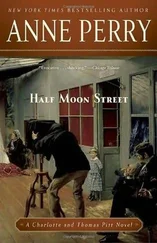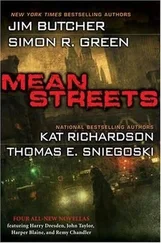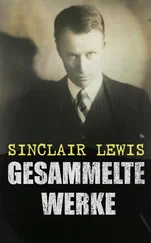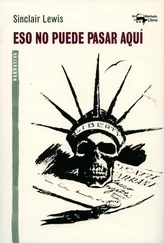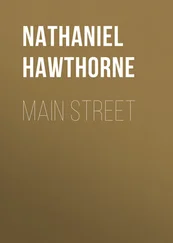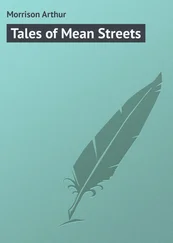Sinclair Lewis - Main Street
Здесь есть возможность читать онлайн «Sinclair Lewis - Main Street» — ознакомительный отрывок электронной книги совершенно бесплатно, а после прочтения отрывка купить полную версию. В некоторых случаях можно слушать аудио, скачать через торрент в формате fb2 и присутствует краткое содержание. Жанр: unrecognised, на английском языке. Описание произведения, (предисловие) а так же отзывы посетителей доступны на портале библиотеки ЛибКат.
- Название:Main Street
- Автор:
- Жанр:
- Год:неизвестен
- ISBN:нет данных
- Рейтинг книги:3 / 5. Голосов: 1
-
Избранное:Добавить в избранное
- Отзывы:
-
Ваша оценка:
- 60
- 1
- 2
- 3
- 4
- 5
Main Street: краткое содержание, описание и аннотация
Предлагаем к чтению аннотацию, описание, краткое содержание или предисловие (зависит от того, что написал сам автор книги «Main Street»). Если вы не нашли необходимую информацию о книге — напишите в комментариях, мы постараемся отыскать её.
libreka classics – These are classics of literary history, reissued and made available to a wide audience.
Immerse yourself in well-known and popular titles!
Main Street — читать онлайн ознакомительный отрывок
Ниже представлен текст книги, разбитый по страницам. Система сохранения места последней прочитанной страницы, позволяет с удобством читать онлайн бесплатно книгу «Main Street», без необходимости каждый раз заново искать на чём Вы остановились. Поставьте закладку, и сможете в любой момент перейти на страницу, на которой закончили чтение.
Интервал:
Закладка:
Thus she triumphed through the class, which was a typical Blodgett contest between a dreary teacher and unwilling children of twenty, won by the teacher because his opponents had to answer his questions, while their treacherous queries he could counter by demanding, "Have you looked that up in the library? Well then, suppose you do!"
The history instructor was a retired minister. He was sarcastic today. He begged of sporting young Mr. Charley Holmberg, "Now Charles, would it interrupt your undoubtedly fascinating pursuit of that malevolent fly if I were to ask you to tell us that you do not know anything about King John?" He spent three delightful minutes in assuring himself of the fact that no one exactly remembered the date of Magna Charta.
Carol did not hear him. She was completing the roof of a half-timbered town hall. She had found one man in the prairie village who did not appreciate her picture of winding streets and arcades, but she had assembled the town council and dramatically defeated him.
III
Though she was Minnesota-born Carol was not an intimate of the prairie villages. Her father, the smiling and shabby, the learned and teasingly kind, had come from Massachusetts, and through all her childhood he had been a judge in Mankato, which is not a prairie town, but in its garden-sheltered streets and aisles of elms is white and green New England reborn. Mankato lies between cliffs and the Minnesota River, hard by Traverse des Sioux, where the first settlers made treaties with the Indians, and the cattle-rustlers once came galloping before hell-for-leather posses.
As she climbed along the banks of the dark river Carol listened to its fables about the wide land of yellow waters and bleached buffalo bones to the West; the Southern levees and singing darkies and palm trees toward which it was forever mysteriously gliding; and she heard again the startled bells and thick puffing of high-stacked river steamers wrecked on sand-reefs sixty years ago. Along the decks she saw missionaries, gamblers in tall pot hats, and Dakota chiefs with scarlet blankets. . . . Far off whistles at night, round the river bend, plunking paddles reechoed by the pines, and a glow on black sliding waters.
Carol's family were self-sufficient in their inventive life, with Christmas a rite full of surprises and tenderness, and "dressing-up parties" spontaneous and joyously absurd. The beasts in the Milford hearth-mythology were not the obscene Night Animals who jump out of closets and eat little girls, but beneficent and bright-eyed creatures—the tam htab, who is woolly and blue and lives in the bathroom, and runs rapidly to warm small feet; the ferruginous oil stove, who purrs and knows stories; and the skitamarigg, who will play with children before breakfast if they spring out of bed and close the window at the very first line of the song about puellas which father sings while shaving.
Judge Milford's pedagogical scheme was to let the children read whatever they pleased, and in his brown library Carol absorbed Balzac and Rabelais and Thoreau and Max Muller. He gravely taught them the letters on the backs of the encyclopedias, and when polite visitors asked about the mental progress of the "little ones," they were horrified to hear the children earnestly repeating A-And, And-Aus, Aus-Bis, Bis-Cal, Cal-Cha.
Carol's mother died when she was nine. Her father retired from the judiciary when she was eleven, and took the family to Minneapolis. There he died, two years after. Her sister, a busy proper advisory soul, older than herself, had become a stranger to her even when they lived in the same house.
From those early brown and silver days and from her independence of relatives Carol retained a willingness to be different from brisk efficient book-ignoring people; an instinct to observe and wonder at their bustle even when she was taking part in it. But, she felt approvingly, as she discovered her career of town-planning, she was now roused to being brisk and efficient herself.
IV
In a month Carol's ambition had clouded. Her hesitancy about becoming a teacher had returned. She was not, she worried, strong enough to endure the routine, and she could not picture herself standing before grinning children and pretending to be wise and decisive. But the desire for the creation of a beautiful town remained. When she encountered an item about small-town women's clubs or a photograph of a straggling Main Street, she was homesick for it, she felt robbed of her work.
It was the advice of the professor of English which led her to study professional library-work in a Chicago school. Her imagination carved and colored the new plan. She saw herself persuading children to read charming fairy tales, helping young men to find books on mechanics, being ever so courteous to old men who were hunting for newspapers—the light of the library, an authority on books, invited to dinners with poets and explorers, reading a paper to an association of distinguished scholars.
V
The last faculty reception before commencement. In five days they would be in the cyclone of final examinations.
The house of the president had been massed with palms suggestive of polite undertaking parlors, and in the library, a ten-foot room with a globe and the portraits of Whittier and Martha Washington, the student orchestra was playing "Carmen" and "Madame Butterfly." Carol was dizzy with music and the emotions of parting. She saw the palms as a jungle, the pink-shaded electric globes as an opaline haze, and the eye-glassed faculty as Olympians. She was melancholy at sight of the mousey girls with whom she had "always intended to get acquainted," and the half dozen young men who were ready to fall in love with her.
But it was Stewart Snyder whom she encouraged. He was so much manlier than the others; he was an even warm brown, like his new ready-made suit with its padded shoulders. She sat with him, and with two cups of coffee and a chicken patty, upon a pile of presidential overshoes in the coat-closet under the stairs, and as the thin music seeped in, Stewart whispered:
"I can't stand it, this breaking up after four years! The happiest years of life."
She believed it. "Oh, I know! To think that in just a few days we'll be parting, and we'll never see some of the bunch again!"
"Carol, you got to listen to me! You always duck when I try to talk seriously to you, but you got to listen to me. I'm going to be a big lawyer, maybe a judge, and I need you, and I'd protect you——"
His arm slid behind her shoulders. The insinuating music drained her independence. She said mournfully, "Would you take care of me?" She touched his hand. It was warm, solid.
"You bet I would! We'd have, Lord, we'd have bully times in Yankton, where I'm going to settle——"
"But I want to do something with life."
"What's better than making a comfy home and bringing up some cute kids and knowing nice homey people?"
It was the immemorial male reply to the restless woman. Thus to the young Sappho spake the melon-venders; thus the captains to Zenobia; and in the damp cave over gnawed bones the hairy suitor thus protested to the woman advocate of matriarchy. In the dialect of Blodgett College but with the voice of Sappho was Carol's answer:
"Of course. I know. I suppose that's so. Honestly, I do love children. But there's lots of women that can do housework, but I—well, if you HAVE got a college education, you ought to use it for the world."
"I know, but you can use it just as well in the home. And gee, Carol, just think of a bunch of us going out on an auto picnic, some nice spring evening."
"Yes."
"And sleigh-riding in winter, and going fishing——"
Blarrrrrrr! The orchestra had crashed into the "Soldiers' Chorus"; and she was protesting, "No! No! You're a dear, but I want to do things. I don't understand myself but I want—everything in the world! Maybe I can't sing or write, but I know I can be an influence in library work. Just suppose I encouraged some boy and he became a great artist! I will! I will do it! Stewart dear, I can't settle down to nothing but dish-washing!"
Читать дальшеИнтервал:
Закладка:
Похожие книги на «Main Street»
Представляем Вашему вниманию похожие книги на «Main Street» списком для выбора. Мы отобрали схожую по названию и смыслу литературу в надежде предоставить читателям больше вариантов отыскать новые, интересные, ещё непрочитанные произведения.
Обсуждение, отзывы о книге «Main Street» и просто собственные мнения читателей. Оставьте ваши комментарии, напишите, что Вы думаете о произведении, его смысле или главных героях. Укажите что конкретно понравилось, а что нет, и почему Вы так считаете.

